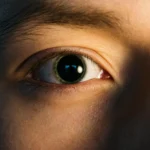There are many different types of personality disorders. Some, like Obsessive-Compulsive Personality Disorder or Paranoid Personality Disorder, are more widely recognized. Others are less known but still deeply affect those living with them. People with personality disorders often struggle with everyday tasks, relationships, and responsibilities.
Research suggests that about 10% of the U.S. population meets the criteria for at least one personality disorder. Personality disorders are among the most common psychiatric diagnoses. Studies also show that 60% of patients seeking mental health care have a personality disorder. Additionally, between 65% and 90% of individuals receiving addiction treatment have at least one co-occurring personality disorder.
What Is a Personality Disorder?
A personality disorder is a type of mental health condition marked by unhealthy patterns of thinking, feeling, and behaving. These patterns are often rigid and deeply ingrained, making it difficult for the person to function in relationships, work, or daily life.
People with personality disorders often believe their behavior is normal, even if it’s very different from what’s socially accepted. This can lead to misunderstandings and conflicts, especially when they blame others for their challenges. Over time, this can affect many areas of life, including friendships, jobs, and family relationships.
Types of Personality Disorders
Mental health professionals group personality disorders into three clusters based on similar traits. Some individuals may show symptoms from more than one disorder or even from more than one cluster.
Cluster A: Suspicious and Eccentric Behavior
These disorders involve unusual ways of thinking and interpreting the world.
Includes:
- Paranoid Personality Disorder
- Schizoid Personality Disorder
- Schizotypal Personality Disorder
Cluster B: Emotional and Impulsive Behavior
People in this group often show dramatic, erratic, or overly emotional actions.
Includes:
- Antisocial Personality Disorder
- Borderline Personality Disorder
- Histrionic Personality Disorder
- Narcissistic Personality Disorder
Cluster C: Anxious and Fearful Behavior
These disorders are marked by intense feelings of fear, anxiety, or insecurity.
Includes:
- Avoidant Personality Disorder
- Dependent Personality Disorder
- Obsessive-Compulsive Personality Disorder
What Causes Personality Disorders?
The exact cause of personality disorders is still unknown. However, most experts agree that a mix of genetics, environment, trauma, and substance abuse can play a role. Studies suggest that these disorders often develop as a response to difficult or painful experiences, such as childhood neglect or abuse.
It’s important to note that people aren’t born with personality disorders. These conditions usually develop over time, especially if early symptoms are ignored or untreated. Without proper care, symptoms can grow worse and lead to serious emotional and social struggles. It’s also common for individuals with personality disorders to misuse alcohol or drugs as a way to cope.
Get Help for Personality Disorders and Addiction
If you or someone you care about is living with a personality disorder, professional help is essential, especially if there’s also a substance use issue. The most effective treatment combines care for both conditions at the same time. This is called dual diagnosis treatment.
Trying to treat addiction alone without addressing the underlying mental health issue can lead to relapse. That’s because many people with personality disorders use substances to manage their emotional pain.
With the right care, people can learn to manage their symptoms and live a healthier, more stable life. Therapy, coping skills, and support make a big difference.
Start Your Recovery at California Recovery Center
At California Recovery Center, we offer expert dual-diagnosis treatment in a supportive and compassionate environment. Our team understands the unique challenges of living with a personality disorder and addiction. We’re here to guide you or your loved one toward lasting recovery.
Reach out to our admissions team today to learn how we can help you take the next step.




